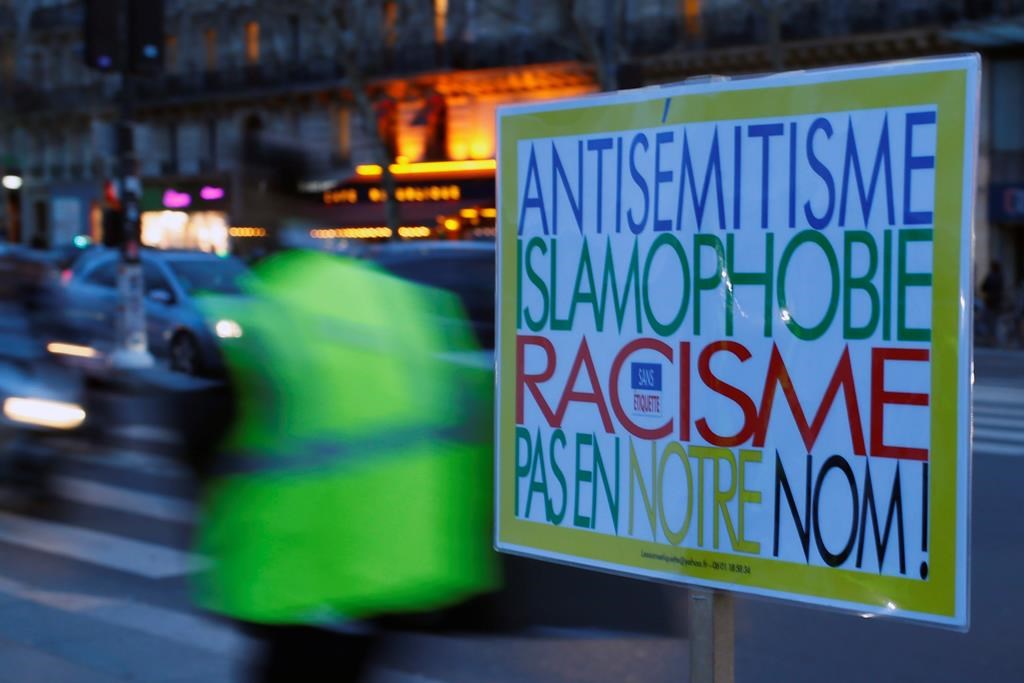It’s anyone’s guess whether Canada’s newest Parliament will last long enough to have a meaningful impact on the lives of Canadians.

There’s plenty to do, not least when it comes to addressing racism in Canada. It’s a big issue that touches on major priorities, among them health care, economic prosperity, housing, and access to justice.
COMMENTARY: Charles Adler on why he teared up on live TV
In fact, Marie Claude Landry, chief commissioner of the Canadian Human Rights Commission, was unequivocal in a statement released the day after the vote.
“This election has left Canada fractured and many Canadians feeling marginalized and divided. There is an urgent need to reunite our country,” she said.
“I call on our newly elected Parliament to take concrete action to confront racism and intolerance, a daily reality for millions of people in Canada. No one should be made to feel like a second-class citizen because of the colour of their skin, what they believe or where they are from.”
Landry also calls on the new government in Ottawa to “address the legacy of racist laws and policies that continue to impact” Canada’s Indigenous communities.

- Canadian man dies during Texas Ironman event. His widow wants answers as to why
- On the ‘frontline’: Toronto-area residents hiring security firms to fight auto theft
- Honda’s $15B Ontario EV plant marks ‘historic day,’ Trudeau says
- Canadians more likely to eat food past best-before date. What are the risks?
She’s right on all fronts. This election, replete as it was with constant news about racist social media posts by various party candidates, anti-immigrant dog-whistles, online smear campaigns, Bill 21, and the racist make-up fiascos, has left many of us uneasy with the state of race relations in this country.
Not that we weren’t even before the election.
Now, Landry’s prominent call only helps further strengthen the chorus of voices that have already called on Canada’s federal government to do all it can to confront Islamophobia, anti-Semitism, anti-Black racism, and other forms of discrimination. We know the situation is bleak in many communities.
The Ontario-based advocacy group, Colour of Change, Colour of Poverty, released 10 fact sheets earlier this year looking at what it calls the “racialization of poverty” in the province and the realities are sobering.
Whether it’s the overrepresentation of Black, Indigenous, and other racialized children in the child welfare system, or that Indigenous people have the worst health care outcomes than any other population in the country, there are numerous indicators of how racism is wreaking havoc on people’s lives and holding them back from fully participating in society.
READ MORE: Which health care promises will the Liberals realistically be able to keep?
There is never a single way to tackle these complex issues, but there are various steps this new government can take. And the good news is some of the track has already been set down by the previous government.
Last summer, the federal government put forward a new anti-racism strategy that commits funding toward strengthening community efforts to confronting racism, as well as placing the onus on the government itself to ensure its own policies are not inadvertently harmful toward minority communities, or leave gaps.
Almost all the parties have expressed some support toward anti-racism work — even the Conservative Party, which had previously opposed Motion 103, the impetus which eventually led to the creation of the new strategy.
The Bloc Québécois (BQ), on the other hand, has said it would want Quebec to have a special exemption from Canada’s Multiculturalism Act, another troubling sign for the minority communities in that province who are already contending with Bill 21, which prohibits people who wear religious symbols from working in certain professions.
Unsurprising that Quebec will be the outlier on these issues, though Canada’s Human Rights Chief Commissioner is clear that Ottawa should “oppose any law in Canada that violates the human rights of minorities.”

Inter-provincial cooperation, as well as work with municipalities, will go a long way toward coordinating efforts to defend human rights nationally. Several municipalities across the country have already passed motions condemning Bill 21. Calgary’s Mayor Naheed Nenshi has said the bill encroaches on the rights of municipalities around whom they can or cannot hire.
Just last week, Nova Scotia banned street checks, also known as carding, which involve police randomly stopping people for identification. A study found that Black people were six times more likely to be stopped than white people in Halifax.
The NDP committed to banning the practice by federal law enforcement officers and said it would encourage counterparts at all other levels of law enforcement to do the same.
A federal election guide for Muslim voters prepared by academics at Laurier University graded each party on various positions impacting diverse communities. The Liberals, the Greens, and the NDP were consistently given a passing grade on their positions around addressing the worrying growth of alt-right movements and in addressing Islamophobia and racism.
While there will be some uncertainty in the days and weeks to come about how this new government will work, there is clearly a significant consensus around the need to address racism in this country.
Sounds like a good place to start the work of Parliament, doesn’t it?
Amira Elghawaby is a human rights advocate based in Ottawa. Follow her on Twitter @AmiraElghawaby




Comments